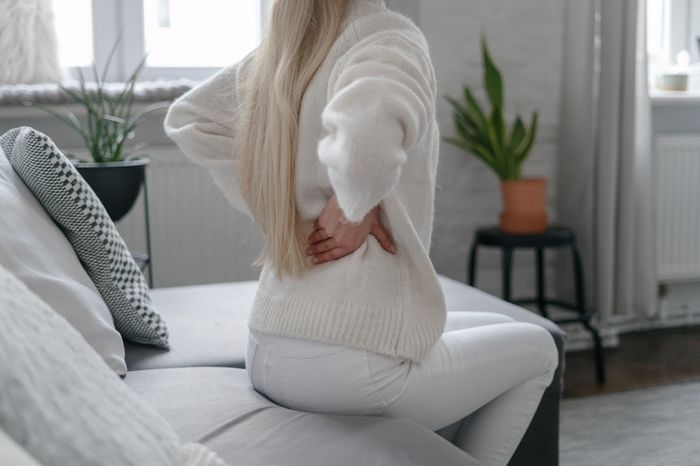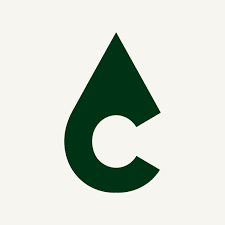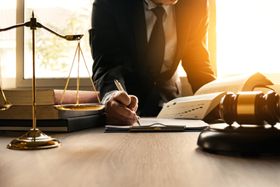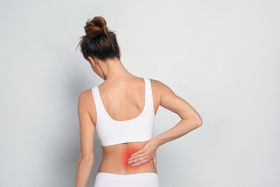Female-Specific Causes of Lower Back Pain in Women (+Natural Tips for Relief)
Published April 10, 2023.

Back pain can plague everyone at some point in their lives and for many possible reasons, some of which are specific only to women. These causes are primarily related to PMS, menstruation, pregnancy, and menopause.
» Figure out your personalised wellness routine with Cannabotech
Lower Back Pain and Pregnancy
One of the most common pregnancy complaints is persistent lower back pain (1). During pregnancy, there is an increase in the hormone relaxin which relaxes muscles around the pelvis and loosens ligaments and joints. This, combined with weight gain, can shift your centre of gravity and unbalance you, leading to back pain.
How to Relieve Pregnancy-Related Back Pain
One of the best ways to relieve pregnancy-related back pain is to make sure you have adequate support for your bump. A good support strap worn during the day and a pregnancy pillow for sleep can keep you stable during the day and night. Combine this with heating pads for the lower back—if you find heat uncomfortable, consider a cold pack instead as this may help reduce inflammation—and you should find some relief from your lower back pain.
» Back pain worse in the morning? Discover the common reasons for lower back pain when waking
Lower Back Pain and Menstruation
One of the more common symptoms at various points in a woman's cycle is lower back pain. Prostaglandins, which are made in the lining of the uterus and increase during menstruation, affect bodily functions like inflammation and pain and can cause the uterus to contract and cramp. Similarly, this can affect the surrounding back muscles, leading to pain that can start just before menstruation (PMS) and continue throughout your period.
There are also a variety of other conditions that cause lower back pain during the menstrual cycle, including endometriosis (when uterine tissue is found outside the uterus), and fibroids (benign growths in the uterus).
How to Relieve PMS-Related Back Pain
Studies have shown that stretching programs can work well to relieve PMS-related back pain (2). For specific exercises, take a look at our collection of physio exercises for lower back pain.
Aside from exercises, heat and cold therapy can also bring some relief. For severe pain, try anti-inflammatory medications, though be sure to consult a doctor before combining this with any other medications.
Hormonal Issues That Can Cause Back Pain
Menopause and Back Pain
Hormonal changes can contribute to back pain during and after menopause. Oestrogen is intimately involved in collagen production so decreased levels can affect collagen throughout the body, including intervertebral discs (3). Weight gain around the stomach that frequently occurs in menopause has also been linked to increased back pain (4).
How to Relieve Menopause Back Pain
Many women find that menopausal back pain decreases if they can boost oestrogen, both naturally or with artificial hormone replacement therapy.
Though it may seem counter-intuitive, regular exercise often helps with back pain. Most professionals recommend that the exercise is low impact and includes stretching. See our menopause-friendly exercises for sacroiliac joint pain to learn more.
There are a wide variety of natural remedies for menopause pain that include eating anti-inflammatory food, yoga, and adding magnesium to your diet. It is always best to try a combination of methods for the best possible outcome, especially if the pain is chronic.
» Learn more: Natural remedies for menopause joint pain
Reduce Back Pain From Home
Women experience lower back pain for a number of very specific reasons related to oestrogen balance, prostaglandins, and relaxin depending upon where they are in their life cycle. The best remedies for this type of back pain include ensuring hormones are balanced when possible, regular exercise (including specific stretching and targeted exercises), massage, heat and cold, and decreasing inflammation. De-stressing is also one of the best ways to help relieve back pain.
If your back pain doesn't subside after you've implemented the various methods outlined in this article, or if it continues after pregnancy and your menstrual cycle, then it might be an indicator of something more serious. Chat with your doctor to ensure that you're getting the best treatment possible, and be sure to check out our wellness quiz to help you build your healthy life.
» Need help with stress relief? See our top tips for adult women








